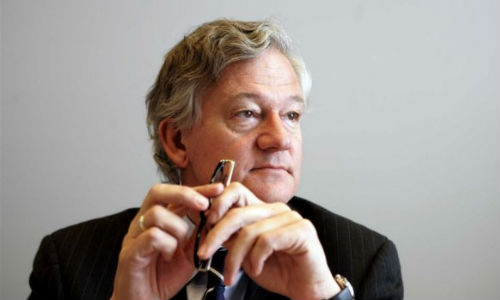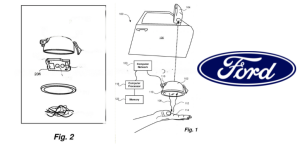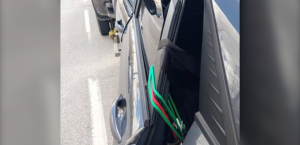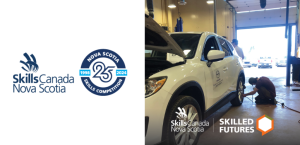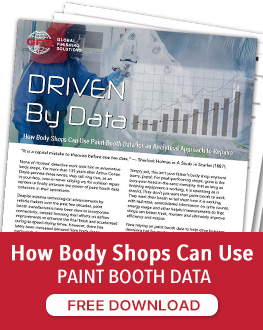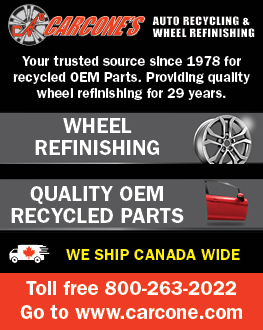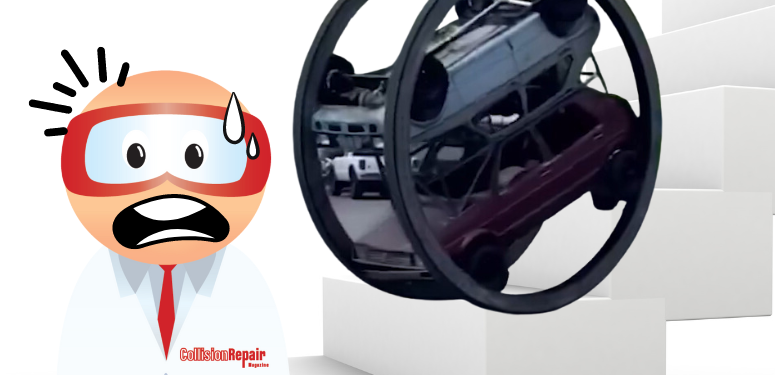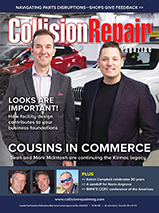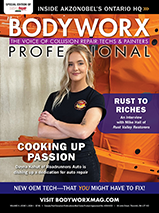By Jeff Sanford
Toronto, Ontario — April 24, 2017 — This week’s Tuesday Ticker looks at PPG’s third bid to buy AkzoNobel, earnings reports from Sherwin-Williams and PPG, why AutoCanada may soon be rated a “buy” again and much, much more!
– AkzoNobel has received a third unsolicited proposal from PPG for all outstanding share capital of the company. PPG had increased its offer for outstanding shares to €96.75 from €88.72.
AkzoNobel rejected the first two bids from PPG and it’s probably safe to assume this bid will be rejected as well. Just last week AkzoNobel’s management hosted an event that highlighted for investors the many reasons why the company would be better off as a stand alone organization. Investors who attended the session heard that the company announced it would boost its dividend payout to shareholders and set a date to sell off its specialty-chemicals division. Divesting that division—which would occur in the next 12 months according to management—would see the creation of two “focused, high-performing businesses with sustainable growth plans,” according to a press release recounting the management plan. The vast majority of the proceeds from the sale would be returned to shareholders. Management also promised to increase the dividend paid by the company if investors sided with current management and ignored the PPG bid.
According to a statement from AkzoNobel, the plan, “… will generate superior, faster and more certain value creation than the alternatives and with substantially fewer risks, uncertainties and social costs.”
Ton Büchner, CEO of AkzoNobel, was quoted as saying, “Our commitment to substantial shareholder returns reinforces our belief that the plan we are outlining today will create a step change in value creation, generating significant shareholder value in the short, medium and long term. It will be delivered at pace, with a clear timeline and is in the best interest of all stakeholders … This strategy will create substantial value for shareholders with significant less risks and uncertainties compared to alternatives.”
The Chairman of the AkzoNobel Supervisory Board, Antony Burgmans, was quoted as saying, “The Supervisory Board believes that management’s plan for AkzoNobel’s future will deliver superior shareholder value compared to the alternatives…It will be delivered by a competent, experienced management team with a proven track record at a faster pace, with considerably less risk and at significantly lower social cost.”
The Wall Street Journal noted that investors did not seem so impressed by the plan, writing that, “When a company unveils a €1 billion special dividend, punchy new margin targets and quarterly earnings a fifth above forecasts, you might expect its shares to leap. The exception, as AkzoNobel showed Wednesday, is when the announcement is designed to block a takeover …” The share price did not react appreciably to the release of the plan.
Also last week AkzoNobel reported first quarter results for 2017, which included a 7 percent increase in revenue across all business areas as a result “of higher volumes and acquisitions.” The company also achieved record profitability, with a return on sales of 10.3 percent (compared to 9.7 percent in 2016).
– PPG also released first quarter earnings last week. The company registered adjusted earnings of $1.35 per share for the quarter, up 6.3 percent for the same period in 2016. That number beat analyst estimates. First-quarter revenue was $351 million. That also exceeded the estimates.
The company also reaffirmed that it plans to spend at least $2.5 billion to $3.5 billion of cash on acquisitions and share repurchases in 2017 and 2018 as consolidation in the sector continues. One analyst noted that “PPG Industries faces a number of headwinds, including a still sluggish global economy. The company’s earnings are also exposed to unfavourable currency fluctuations.”
– 3M will report first quarter earnings this week. The analyst consensus on 3M stock is a 12-month price target of $190 a share, a meager 0.4 percent increase from its current price. On March 20 French investment banking giant Credit Suisse announced a target price on 3M of $203, suggesting a 12-month potential return of 7 percent from its current price. On April 18, investment bank Jefferies rated 3M as “buy” and raised the target price of 3M to $219, which implies a 12-month return of 15.4 percent.
– An article on Baystreet notes that AutoCanada may be a buy again after three years of tough business. The piece goes on to note that it was only June of 2014 that ACQ shares were trading at $90 each. But then the Alberta economy (where half the company’s earnings came from) went into the tank: “The company’s Alberta dealerships saw earnings decline, and the energy sector has been persistently bad since. AutoCanada shares plunged, eventually falling to under $20 each before recovering slightly.”
Earnings collapsed in that time, falling from $2.30 per share in 2014 to $0.09 in 2016. But now the Alberta economy is thought to be recovering. The price of oil is back up to around $50 a barrel. Cash flow within ACQ is “still relatively healthy.” All in, “The company posted free cash flow of $1.70 per share in 2016 and analysts project earnings will recover to $1.69 per share in 2017 and $2.22 in 2018.” Could the stock return to $90? “Once earnings start to recover, AutoCanada can start to acquire more auto dealerships … When sentiment surrounding the sector improves, AutoCanada’s share price is likely to go up as well. A recovery in Alberta will certainly help as well,” according to the report. Just last week the company acquired its first luxury dealership, a Mercedes Benz dealer in Montreal.
– Sherwin Williams also announced earnings this week. According to a press release, net income per share in the quarter increased to $2.53 per share from $1.75 per share in the same quarter in 2016. Some of the increase, however, was due to “the adoption of a new accounting standard (ASU 2016-09).” Costs from the anticipated acquisition of Valspar cut $.08 from per share earnings in the quarter.
The Global Finishes Group’s net sales stated in US dollars increased 3.6 percent to $470.3 million in the quarter primarily due to higher paint sales volume and selling price increases. Selling price increases were partially offset by raw material cost increases.
As of March 31, 2017, the company had cash on hand of $1.02 billion that will be utilized to fund the Valspar acquisition. John G. Morikis, Chairman, President and Chief Executive Officer, said, “We are pleased to report record sales and earnings per share from the continued positive sales volume and strong operating results of our Paint Stores Group and operating margin improvement in our Global Finishes Group.”
Last week we reported on the sale of Valspar’s wood coatings business to Axalta, and speculated that this may be what the companies needed to satisfy regulators before the acquisition could take place. The press release from Sherwin-Williams confirms this and notes that, “The sale of Valspar’s North American Industrial Wood Coatings business to Axalta is subject to the closing of the Valspar and Sherwin-Williams merger.” The deal still needs approval from the regulators here and in the US to become final.
Credit Suisse set a $344 price target on shares of Sherwin-Williams and gave the company a “buy” rating in a research report on Thursday.
– LKQ Corporation will release first quarter 2017 financial results before the market opens on Thursday, April 27, 2017. Watch for more on this next week.
– Equities researchers at National Bank Financial boosted their FY2018 earnings estimates for shares of Uni-Select in a note issued to investors on Wednesday. According to National Bank Financial analyst L. Aghazarian, Uni-Select will post earnings per share of $2.33 for the year, up from their previous forecast of $2.31. Raymond James Financial upped its price objective on shares of Uni-Select from $36.00 CAD to $38.00 CAD in a report back in February.
Related Market Notes
– Auto Part Max, an online source of used engines, remanufactured engines, rebuilt engines, used transmissions and replacement auto parts. It put a press release last week announcing that it had “achieved year over-year growth of 20 percent.” The press release went on to say that the family owned and operated company will be celebrating its 10th anniversary next year. Yalda Koohi, owner of Auto Part Max, was quoted as saying, “We operate in an extremely competitive field, and the secret of our lasting success and growth is hardly a secret at all … We see ourselves as standing up for real people who are tired of getting the run around from auto part dealers, and simply want to work with an honest company that does business the right way, and treats every customer with total respect regardless of whether they need a $30,000 total power train replacement, or a $5 interior cabin bulb.”
– Scotiabank recently released the latest issue of its Global Auto Report. According to the bank, “two million jobs in North America’s auto sector could be at risk as a result of [Trump] interfering with the NAFTA supply chain …” The report goes on to say that global car sales are experiencing impressive growth, but not all is peachy keen in the North American auto industry: “Trump’s push to renegotiate NAFTA has created significant uncertainty for an industry that has the most highly integrated supply chain of all manufacturing industries under NAFTA.”
According to the bank’s analysts, the tight integration of the sector is what has allowed it to perform so well. “The integration of the North American auto market has enabled the sector to outperform on a global stage,” Carlos Gomes, Senior Economist and Auto Industry Specialist, Scotiabank, was quoted as saying. “Any new restriction to the free flow of vehicles and parts among the three countries would have a negative impact on economic activity in Canada, Mexico and the Unites States, including potential job losses.”
More than 92 per cent of all auto industry shipments from the US are now destined to one of the three NAFTA countries, according to the report.



